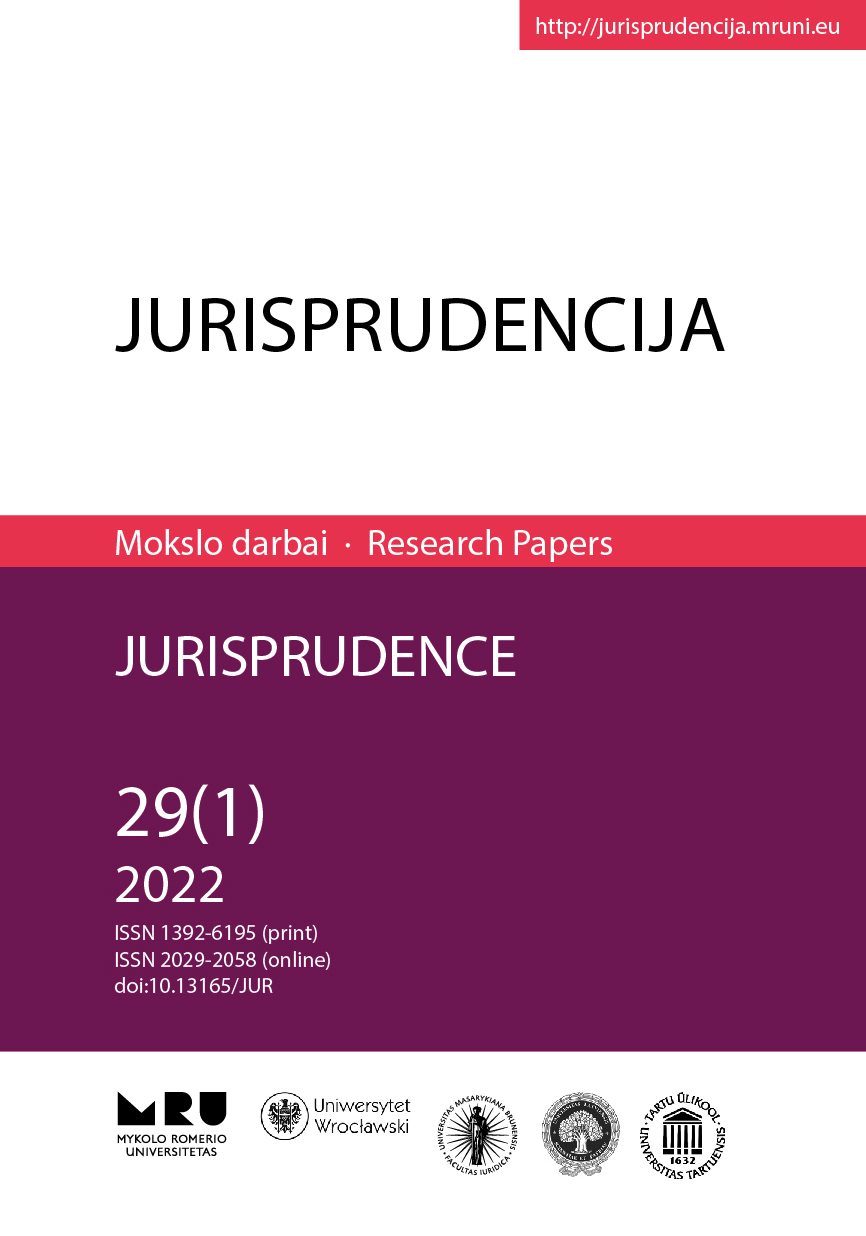ADMINISTRACINĖ TEISĖ M. RÖMERIO VEIKLOJE
ADMINISTRATIVE LAW IN THE ACTIVITIES OF MYKOLAS RÖMERIS
Author(s): Ieva DeviatnikovaitėSubject(s): Law, Constitution, Jurisprudence, Administrative Law
Published by: Mykolas Romeris University
Keywords: administrative law; administrative legal relationships; administrative court;
Summary/Abstract: It is customary to consider M. Römeris as the creator of Lithuanian constitutional law. However, his academic and social activities testified to the fact that he was also a pioneer of Lithuanian administrative law. M. Römeris was most professionally and thoroughly interested in issues of administrative law in Lithuania, especially in developing the concept of an administrative court. The first monograph in Lithuanian language related to the institute of administrative law (control of the legality of administrative acts or judicial review), “The Administrative Court”, was written by this scholar. Not only that, but Römeris also developed the topic of administrative law in his articles, other books, studies, diaries, and the case-law of the Supreme Tribunal. Further, Römeris was also involved in drafting the Statute of the Council of State, drafting the Law on Administrative Courts, writing explanatory notes to draft laws, advising the Seimas Commission on drafting the Law on Administrative Court, teaching students about judicial review, inviting professors of the University of Paris to give public lectures on administrative justice to Lithuanian lawyers, trying to establish a School of Political Science and an Institute of Administrative Sciences, and finally desperately trying to establish an administrative court in Lithuania.The scientific foundation of this article consists of the material of five funds stored in the Manuscript Departments of the National Central State Archives of Lithuania, Martynas Mažvydas National Library, the Wróblewski Library of the Lithuanian Academy of Sciences, and Vilnius University Library. The historical, comparative, analytical, descriptive, and document analysis methods were used in the research.
Journal: Jurisprudencija
- Issue Year: 29/2022
- Issue No: 1
- Page Range: 47-63
- Page Count: 17
- Language: Lithuanian

